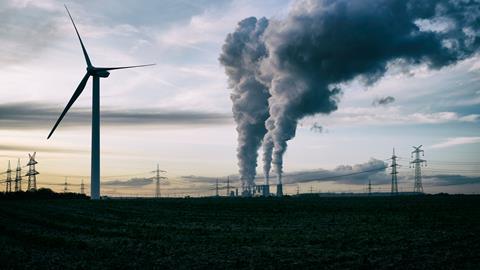Law firms can refuse to act for polluters if the client’s activities inhibit progress toward net zero or otherwise conflict with the firm’s own ‘values’ on climate change.
So declares the Law Society, in what the professional body today describes as ‘milestone’ climate change guidance for solicitors.
Chancery Lane also advises practices to assess the impact on staff of their own stance on climate change, especially as this is increasingly important for young lawyers and students choosing where to work. Law firms may want to consider accommodating employees who identify commitment to the climate as a ‘recognised philosophical belief’ - and therefore a protected characteristic - under the Equalities Act.
Today’s guidance, months in preparation and a world first among global bars, is certainly timely. In March a row erupted at the bar after leading barristers signed a declaration saying they will not prosecute peaceful climate protesters or act for companies pursuing fossil fuel projects.
For solicitors, there is no equivalent of the ‘cab rank rule’ under which barristers must take a case they are qualified for provided they are available. But law firms are coming under close scrutiny for their climate credentials - and not just by the environmental lobby. Last year, a group of Republican senators in the US wrote to over 50 law firms warning them that their ESG (environmental, social and governance) practices could breach anti-trust laws by restricting the supply of fossil fuels.
The Law Society’s 29-page guidance note, the Impact of Climate Change on Solicitors, follows Chancery Lane committing to a Climate Change Resolution in 2021. The resolution pledged to provide the profession with guidance on how to take climate change into consideration when providing legal services, and a call to action for law firms and solicitors.
The note provides guidance for solicitors and firms on avoiding accusations of ‘greenwashing’, and how climate change physical and legal risks may be relevant to advice. It also considers how climate change considerations affect professional duties, and what to evaluate when accepting client instructions.
'Our climate change guidance does not say to solicitors they should not represent certain clients,' said a Law Society of England and Wales spokesperson.
'We recognise the importance of access to justice being available to everyone and that lawyers can play an important role in advising heavy-emitting clients to help them transition to net zero. This is critical if the government is to reach its legislative target of net zero by 2050.
'Individual solicitors and firms can accept or decline to represent clients as a basic regulatory fact, and we present this neutrally to the profession as something they can consider in a climate change context, as there is a lot of confusion around what approaches can be taken.'
A relevant paragraph of the guidance reads: ‘Some solicitors may…choose to decline to advise on matters that are incompatible with the 1.5°C goal [of the 2016 Paris Agreement], or for clients actively working against that goal if it conflicts with their values or their law firm’s stated objectives. This is a matter for individual solicitors and law firms, recognising solicitors’ professional obligations.’
Lubna Shuja, president of the Law Society, said: ‘The effects of climate change – even on legal practices – are wide-ranging and constantly evolving. Solicitors should be aware of this changing landscape and its potential impact upon their organisations, as well as on the legal advice they provide.
‘We encourage solicitors to take the initiative to understand and pre-empt the climate legal risks with the help of our guidance. This will ensure they can continue to run their businesses and advise their clients competently and compliantly.’
The City of London Law Society welcomed the guidance as 'a reference point for solicitors looking to understand the legal profession’s collective response' to climate change. It will be 'of particular help to those practising in the most relevant areas and those looking to get more actively involved in that response', the CLLS said.
Green law group ClientEarth described the guidance as 'much-needed to help lawyers and law firms reckon with the impact of their work on the climate crisis, and the impact of the climate crisis on their work'.
'Many law firms are making climate-related commitments themselves, or advising clients who have done so, and many lawyers are advising on climate-related regulations and the implications of climate change for existing laws,' said ClientEarth lawyer Robert Clarke.
'Importantly, the guidance helps solicitors grapple with their "advised" emissions – likely the most significant source of climate impact for lawyers – and highlights that law firms may face regulatory and reputational consequences if their sustainability claims can’t be backed up and are perceived as "greenwashing".
'The guidance also clarifies that solicitors are not bound by the same "cab rank rule" as barristers and have a wide discretion to choose whether to accept particular instructions or clients for many reasons, including climate. It is for firms to make this decision in the context of their businesses.'
This article is now closed for comment.




























37 Readers' comments